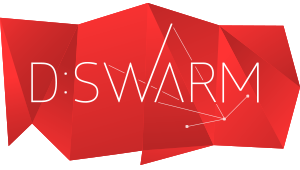The Future of Decentralized Software: A Paradigm Shift in Innovation
Subheading 1: From Centralization to Decentralization: A Technological Revolution
The world of software is on the brink of a monumental shift, one where the locus of control transitions from centralized entities to the collective intelligence of the crowd. This transformation towards decentralized software is not merely a trend but a technological revolution that holds the potential to reshape the future of innovation.
Subheading 2: Unraveling the Mystique of Decentralization
At its core, decentralization represents a departure from the conventional model of software development, where power and decision-making authority were concentrated within the walls of corporate behemoths. It hinges on concepts such as blockchain, peer-to-peer networks, and distributed ledger technologies, reshaping the way we interact with information, services, and digital assets.
Subheading 3: Blockchain: The Vanguard of Decentralization
Blockchain technology is the vanguard of decentralization. It provides an immutable, transparent, and tamper-proof ledger that empowers individuals to transact, collaborate, and interact without the need for intermediaries. The power of blockchain lies in its consensus algorithms, cryptographic security, and the elimination of the single point of failure.
Subheading 4: Empowering the Individual
Decentralized software flips the script by restoring power to the individual. It liberates users from data silos, surveillance capitalism, and overreaching corporate control. In this new landscape, individuals have sovereignty over their data, identity, and digital interactions, a radical departure from the norm.
Subheading 5: Reimagining Trust and Security
Trust, traditionally mediated by institutions, takes on a new dimension in the decentralized paradigm. Smart contracts, enabled by blockchain, automate agreements and transactions, reducing the need for intermediaries. The security protocols underpinning decentralized systems offer a level of resilience and trust that traditional centralized systems can only dream of.
Subheading 6: Disrupting Legacy Systems
Decentralized software has already started to disrupt numerous industries. It is poised to challenge traditional banking, healthcare, supply chain management, and governance. Smart cities powered by decentralized technology could usher in a new era of urban planning and resource management, while decentralized energy grids promise a sustainable and equitable future.
Subheading 7: The Wisdom of the Crowd
Crowdsourcing, a cornerstone of decentralization, taps into the collective intelligence of the crowd. Decentralized decision-making platforms utilize tokenomics and consensus mechanisms to enable the community to steer the development and governance of projects. The result is innovation driven by the diverse and collective wisdom of participants.
Subheading 8: The Dark Side of Decentralization
Decentralized systems are not without their challenges. Scalability issues, regulatory hurdles, and the potential for illicit activities are concerns that need to be addressed. However, these challenges are not insurmountable and are part of the growing pains of a transformative technology.
Subheading 9: The Long Arc of History
In the grand sweep of technological history, decentralized software represents a paradigm shift as momentous as the advent of the internet itself. It’s a progression that champions the values of openness, transparency, and inclusivity, fostering a digital world where innovation knows no bounds.
Subheading 10: The Verdict: Decentralization is the Future
In conclusion, the shift towards decentralized software is inevitable. It promises a world where innovation is democratic, data is secure, and trust is redefined. This transformative wave is not a mere fleeting trend but a fundamental reimagining of how we interact with the digital realm. As the future unfolds, the pioneers of decentralization stand to shape a new era of possibilities for humanity.
